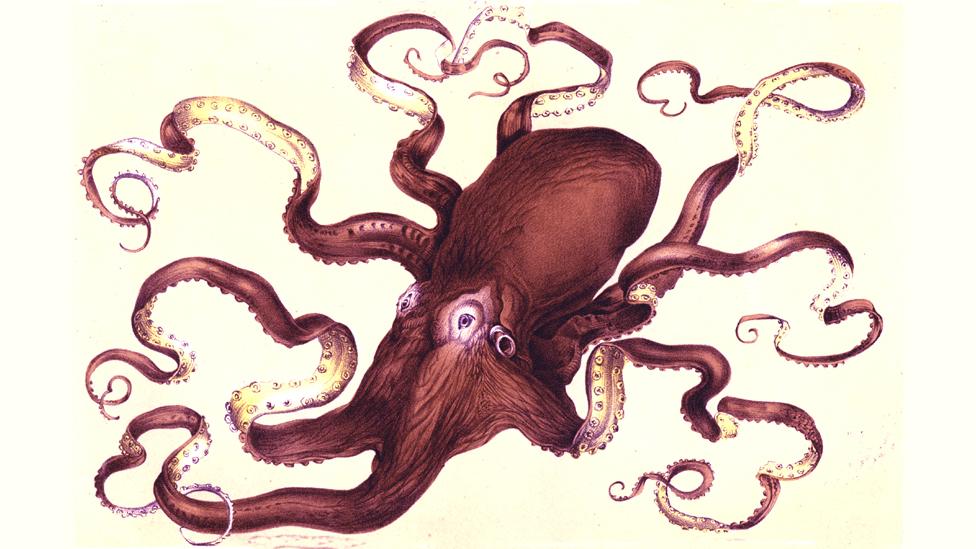Octopuses found in Guernsey waters after 50-year hiatus
- Published
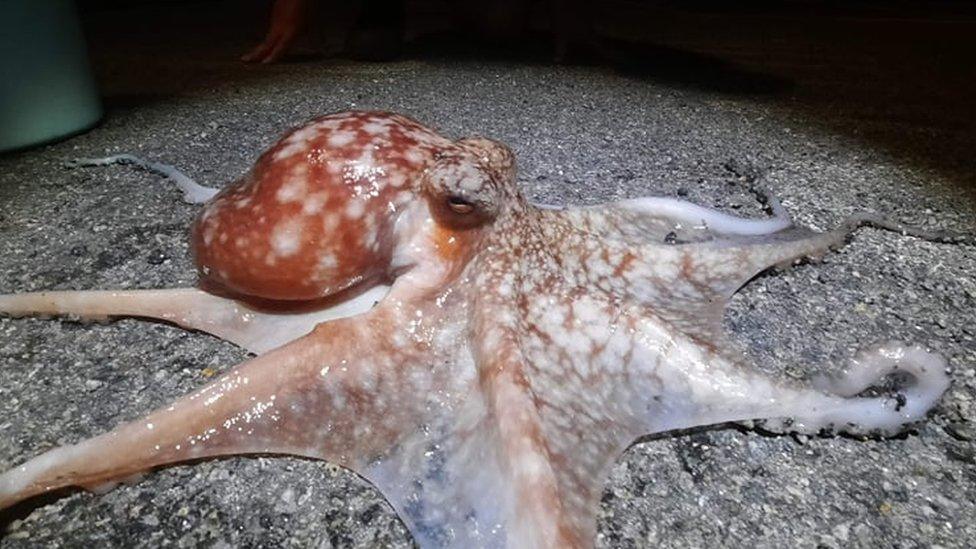
Amateur fisherman Gavin Arnold caught his first octopus off Guernsey
It was a summer's night and a predator was emerging from the dark water below. The creature was an octopus, the first a surprised amateur fisherman had ever caught.
Gavin Arnold, 43, thought it was a cuttlefish wrapped around his orange and blue lure until he saw the rarer night-time predator break the surface.
The octopus was one of a small number caught in recent months near the lights of St Peter Port, Guernsey's main town, along with the more common cuttlefish and squid.
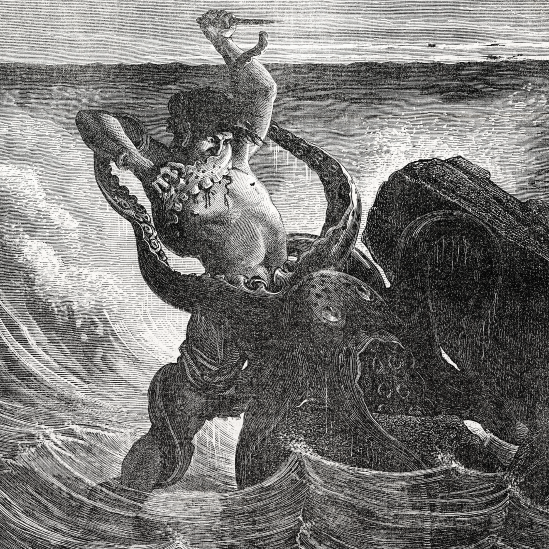
The giant octopus was made famous by Victor Hugo's Toilers of the Sea, which he wrote while in exile in Guernsey
After disappearing from Guernsey waters half a century earlier, the return of the blue-blooded animal is now being celebrated in the island.
"It's the time of the octopus again," Mr Arnold said, happy to see one for the first time.
But as fans of the recent Netflix hit My Octopus Teacher will know, these creatures are mysterious beings and Guernsey's own octopus story is not a simple one.
The 'devil-fish'
It began with Victor Hugo's giant octopus - a Victorian sensation, made famous in his 1866 novel Toilers of the Sea.
Written in Guernsey - while exiled from France for criticising Napoleon III's abolition of the democratic system of government - the book featured a fight between a fisherman and the beast that drank the blood of its "victims".
"He draws you to him, and into himself," he wrote. "While bound down, glued to the ground, you feel yourself gradually emptied into this horrible pouch, which is the monster itself."
Hugo's inspiration has been attributed to his visits to the neighbouring island of Sark, where in 1857 he saw an octopus chase his son, external as he swam in a cave.
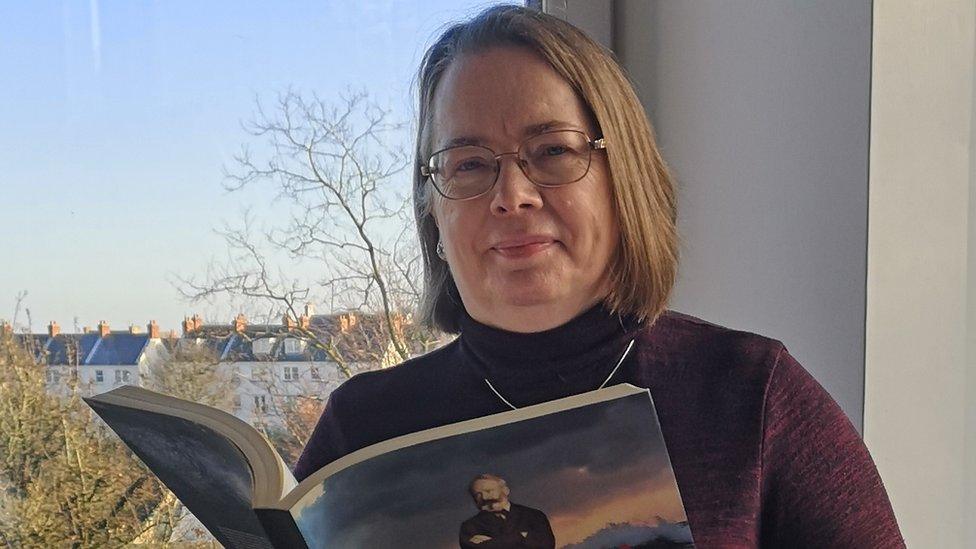
Dinah Bott said Victor Hugo used the local dialect word for octopus, which made its way into the French language
Hugo calls his octopus the "devil-fish" - believed to be influenced by Sark lobster fishermen's tales of their catches being snatched.
The word he used for the cephalopod - not a fish - was pieuvre, from the local dialect.
Such was the notoriety of Hugo's beast that pieuvre is still used in French for octopus, alongside poulpe.
"The whole of Paris was full of octopuses, octopus hats, everybody was writing parodies of it, making jokes and cartoons," said Dinah Bott, chairwoman of The Victor Hugo in Guernsey Society.
"It was very quickly adopted into the language."
'Plagues'
Soon the infamous "devil-fish" would not just be causing problems for Sark's fishermen.
In 1900 the first of several "plagues" of octopuses was recorded on England's south coast as they raided the pots of English lobster and crab fishermen.
The phenomenon was linked to periods of warmer water temperatures which allowed the common octopus to breed earlier off Jersey and - the theory goes - travel further into the English Channel as its favourite shellfish prey became more scarce.
"Plagues" of the typically Mediterranean species were documented over several years up to 1954, but a cold snap would soon spell disaster.
The big freeze
The freezing winter of 1962-1963 saw temperatures plummet across Britain, with the sea even freezing off Kent.
In Guernsey, air temperatures dropped to -8C, according to one account of island fishing history.
"The abnormally cold conditions completely decimated the local octopus stocks," it reads.
"They have never recovered and to see an octopus in Bailiwick waters is now quite a rare event," Len Le Page, author on angling in the islands, wrote in 1999.
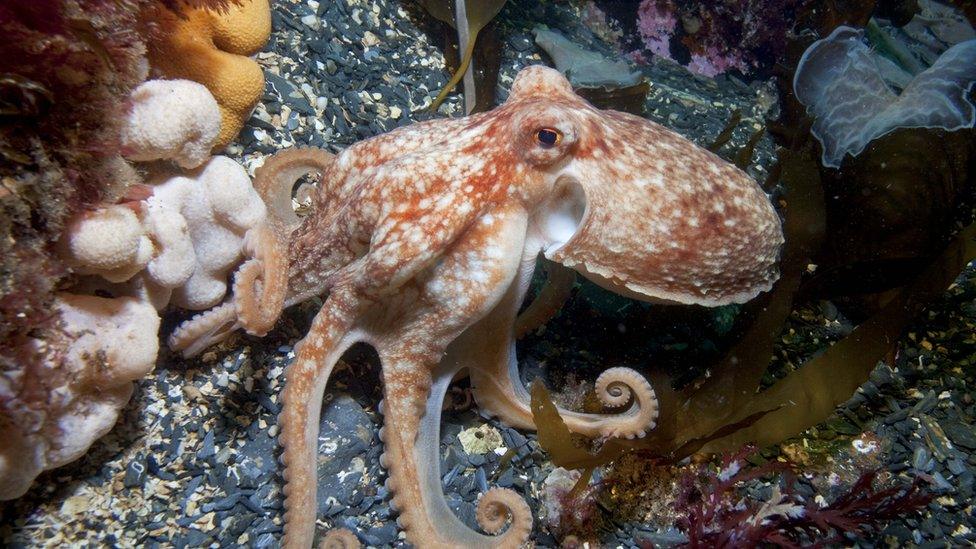
Sue Daly has dived for more than 30 years but has not seen an octopus in local waters. She snapped this one off the Isle of Man
Sark diver Sue Daly can back that up. She has been diving in the Channel Islands for more than 30 years and has never seen an octopus.
"It's strange that they've never returned in any number because we obviously have the right habitat for them as they were once so abundant.
"Just shows that once things are gone it's not easy for them to come back," she said.
The Northern invader
The octopuses apparent return after half a century has understandably led to some head-scratching among marine wildlife experts.
Paul Chambers, a marine biology author, has a theory on the pieuvre's apparent revival.
The Jerseyman has also never seen an octopus during his Channel Island dives and thinks the ones being caught off Guernsey are less likely to be Hugo's "devil-fish" or common octopus, but rather the smaller curled octopus.
"We've lost the big guy, the bully if you like, and it's allowed the smaller one to come in," he said.
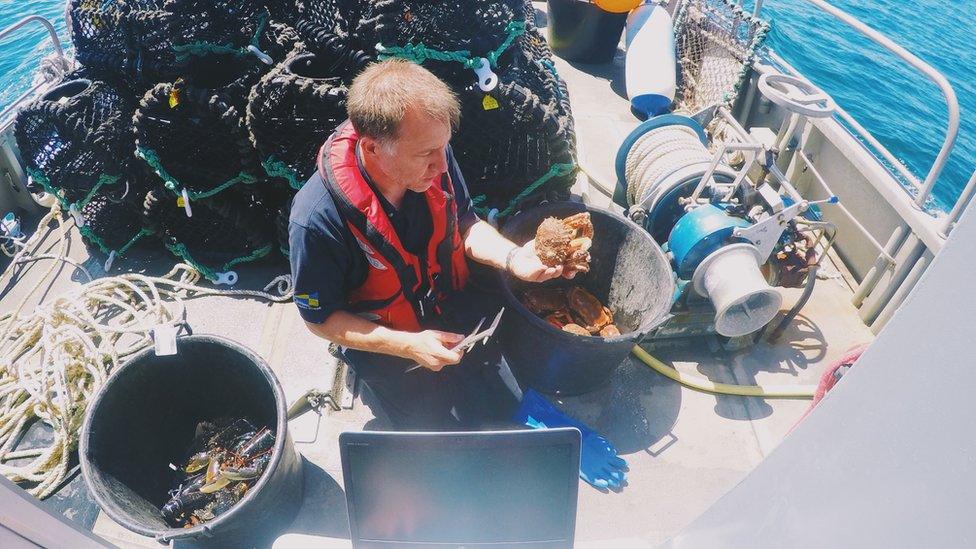
Paul Chambers believes the octopuses being seen in Guernsey waters are the smaller curled octopus rather than the common octopus
The northern species are found more widely in British waters and may be filling the void left by the common octopus, which was less able to cope with the big freeze of the 1960s.
"In that respect we are now in octopus terms pretty much on a par with the British Isles in terms of the species we get," he said - citing a small number of octopus caught off Jersey since 2007.
Guernsey's Biological Records Centre has no data to back up an octopus recovery in local waters, but there was a "clear trend" of increasing sightings, said Liz Sweet, from the centre.
"It's great to see octopuses are on the rise. This is probably a combination of warming seas and also due to how long it takes them to rebuild their population," she said.
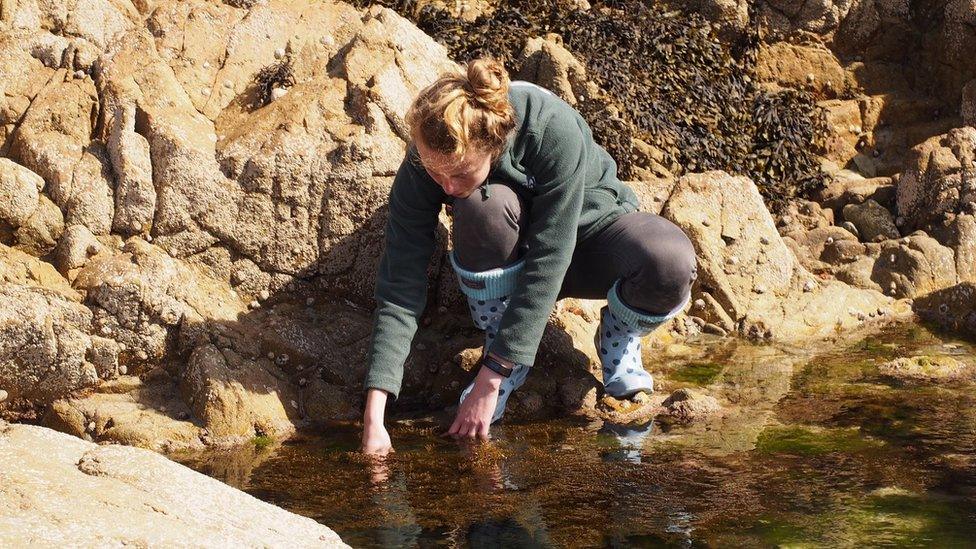
Laura Bampton said she thought the octopuses were only being noticed due to the growing population
Unlike squid and cuttlefish catches, any octopus landed in Guernsey are not recorded in the island's annual fishing figures, external.
Without any robust data to back up the recovery, another Guernsey wildlife group is watching the next chapter in the island's octopus story with interest.
La Societe Guernesiaise was not around when Hugo was in the island, but it has studied and helped look after the island's wildlife since 1882.
During her time at the society volunteer Laura Bampton has received a "handful" of reports of octopus sightings.
"It's not that they've only just recolonised in the past few years," she said. "It'll be that they're only here in big enough numbers that people are noticing them, probably."
But with octopus populations prone to collapsing as quickly as they have grown over the centuries, she has been heartened by the positive attitude of islanders encountering these intelligent creatures for the first time.
"It's a great thing - they're amazing animals," she added.
Related topics
- Published29 May 2020
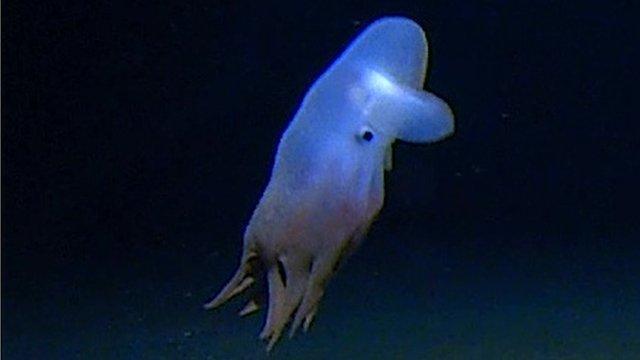
- Published7 April 2019

- Published26 February 2019
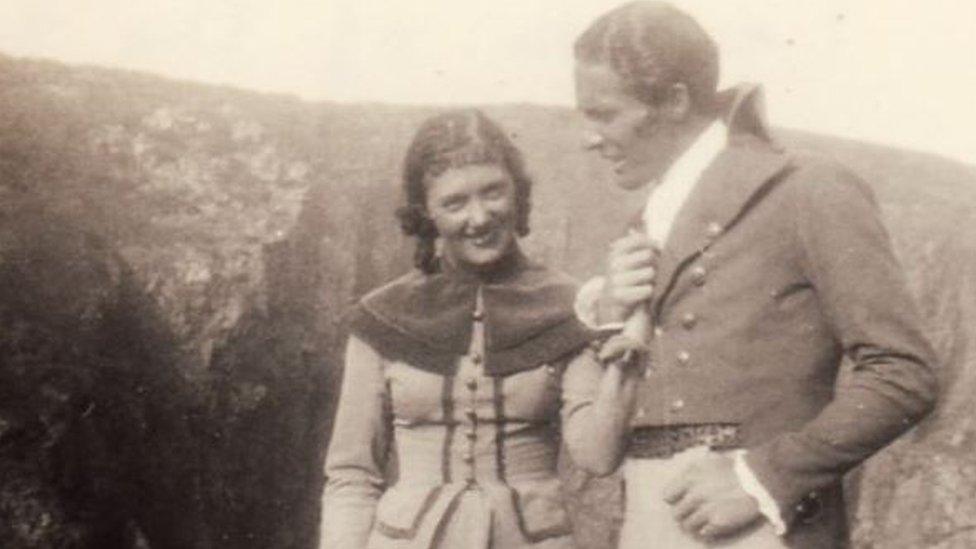
- Published26 March 2016
